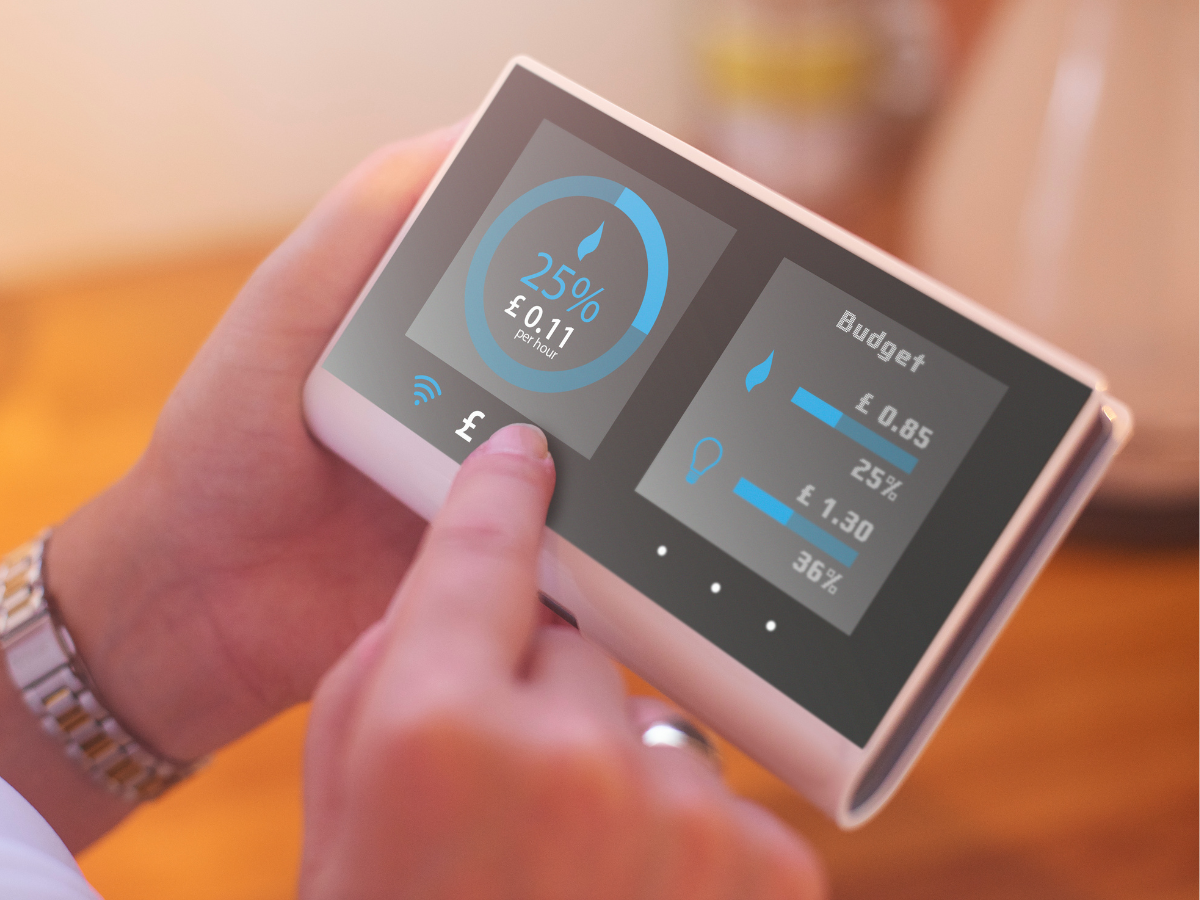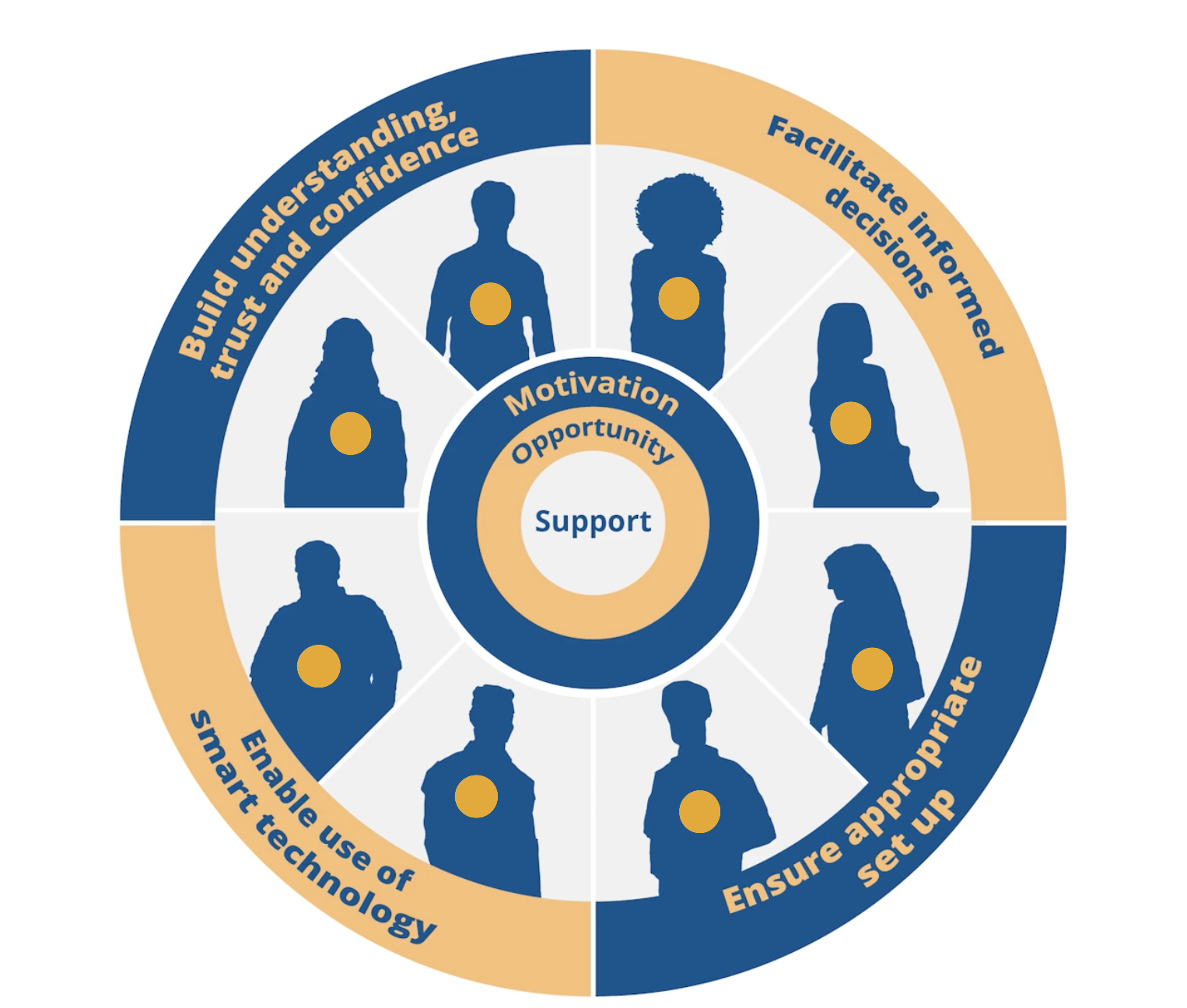How to make smart energy technology more inclusive
Robin Christopherson | 29 Aug 2023Smart energy technology can help households save money and reduce their carbon footprint by shifting their electricity usage to times when there is more renewable energy on the grid. But not everyone can access or benefit from these products and services, especially those who face barriers such as disability, low income, digital exclusion, or language difficulties.
In August 2023, UK consumer support charity Citizens Advice published a guide; 'Powering up participation: A guide to making smart energy technology more inclusive' to assist the energy industry in ensuring that everyone - including those groups mentioned above - can take advantage of cleaner, more affordable energy.
In their guide, they share their insights after testing a smart thermostat with people who face such barriers, as well as introducing a new interactive tool that will help the smart energy sector consider the different challenges that consumers may encounter along their journey of using smart energy technology.
Why inclusivity matters
Smart energy technology has the potential to transform how we use and manage energy at home. It can help us to save money, reduce our carbon footprint, and support the transition to a low-carbon energy future.
However, not everyone can access or benefit from these products and services. Some people may face barriers such as:
- Disability: physical, sensory, cognitive, or mental health impairments that may affect how they interact with technology or understand information
- Low income: financial constraints that may limit their ability to afford or invest in technology or tariffs
- Digital exclusion: lack of access, skills, or confidence to use digital devices or platforms
- Language difficulties: limited proficiency in English or preference for other languages that may affect how they communicate or access information
Robert (58, London) is neurodivergent and not confident using technology; “I feel excluded, kind of alone and isolated when it comes to new technology, so I feel like I’m missing the boat”
As well as the very real issue of technologies - such as smart thermostats - not always being accessible or easy to use by these groups, Citizens Advice highlights some of the other barriers that can compound and create further challenges for consumers, such as the lack of:
- Awareness: not knowing about the existence, benefits, or suitability of smart energy technology
- Trust: not feeling confident or comfortable with using technology or sharing data
- Control: not having enough choice, flexibility, or autonomy over how they use energy or technology
- Support: not receiving adequate or appropriate guidance, assistance, or feedback from providers or intermediaries
These challenges can prevent consumers from participating in energy flexibility, which means they miss out on the opportunities to save money and reduce their carbon footprint. They also mean that the smart energy sector misses out on a large and diverse market of potential customers.
How to design for inclusivity
Citizens Advice conducted usability testing of a smart thermostat with a group of users who faced many of these barriers, in order to understand how they interact with the product, what they liked and disliked, and what difficulties they encountered.
They found that, whilst the product design was generally intuitive and easy to use:
- Some features were confusing or inaccessible for some users
- Some users were unsure or sceptical about how it works or how much they could save
- Some users needed more or different types of guidance, assistance or feedback
As a result, they identified some best practices and recommendations for designing more inclusive and user-friendly products, such as:
- Using clear and simple language, icons and colours
- Providing multiple ways of inputting and receiving information
- Offering flexible and personalised settings and options
- Clearly explaining how the product works and what it does
- Giving feedback on performance and savings
- Providing accessible and tailored support channels
At AbilityNet, we are experts in assisting organisations to create accessible and inclusive digital products that are easy to use by all. We applaud Citizens Advice for their approach to the testing of this product, its documentation and support, and for the clarity of their findings and recommendations. Brilliant work - and we hope that they’ll help the energy industry make more inclusive products.
But Citizens Advice didn’t stop there. They also produced a really useful interactive guide to assist the industry in accessing their recommendations.
An interactive tool to aid inclusive smart energy technology
To help the sector consider the different challenges that consumers may face along their journey of using smart energy technology, Citizens Advice created a new interactive tool for inclusive design. Based on their research findings and existing frameworks of consumer vulnerability and digital inclusion, the tool allows users to:
- Select one or more barriers that consumers may face
- See how these barriers can affect different stages of the consumer journey, from awareness to support
- Explore possible solutions or actions to address these challenges
The tool is intended to be a starting point for discussion and reflection, not a definitive or comprehensive guide. Echoing a key message we also always stress, that they encourage manufacturers and designers to test their assumptions and solutions with actual consumers who face barriers. Testing your products with users with more extreme needs makes for products that are extremely usable for all.

Here’s to a more inclusive and more affordable future for our energy needs
Whilst smart energy technology may seem like a minor player in the larger picture of digital technology, being able to effectively access affordable energy can literally save lives. So bravo Citizens Advice. We trust that this tool will help the sector to put inclusivity at the heart of designing technology and the consumer journey as a whole.
Let’s hope this is a lightbulb moment for the sector and that ‘Powering up participation’ helps forge a future where no consumer will be left out in the cold.



